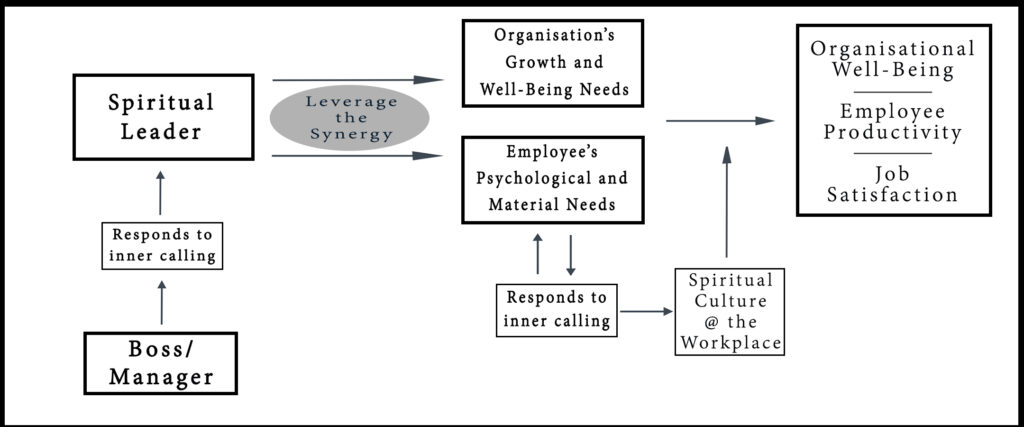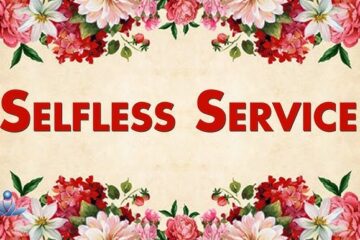As we become more progressive and ambitious as a society, the workplace will keep assuming larger roles as the centre of action fuelling all that of our desires. Whether it is to compete among the best in the industry or pressure from shareholders, managements are increasingly becoming more and more demanding from their employees, especially in the last two to three decades. The focus is on increasing the turnover and profits and obviously it is the employees from top to bottom in the hierarchy on whom the onus is laden. It must also be considered that the 21st century employee is not as feeble as his counterpart a few decades ago. He has more welfare based rights and knows when and how to flaunt them to the management.
Leadership in the 21st century therefore plays a very vital role. Leadership was always an art and not much of a skill that can be learnt in an academic classroom. But leaders did go with the book so far and tried to use carrot and stick to get their work done from an employee. In current times though, it is not going to work that way, at least if we are talking long term. Leadership abilities will have to be developed instinctively and has to start with self. Leadership is subjective and every employee cannot be handled in the same way and therefore one has to take guidance from the inner voice in handling people and situations in a fast changing and challenging dynamic market environment.
One of the most popular theories on spiritual leadership given by L.W. Fry, mentions through ample research in real life situations, that spiritual leadership has benefits across the triple bottom line – people, planet and profits which can conveniently be brought in the gamut of overall wellbeing inclusive of spiritual, physical and psychological well being of the individual and the sustainable growth of the organisation.
In spiritual leadership and the way it influences organisational well-being, the journey starts with a manager or a boss, responding to his inner calling and transforming into a spiritual leader. This is the first step of organisational change management process in how it imbibes the workplace spirituality model through leadership intervention.
In the famous book ‘Seven Habits of Highly Effective People’ by Stephen Covey, the sixth habit mentioned is ‘Leverage the Synergy’. The leader’s job today is to facilitate an environment where the needs of the employees are synergised with organisational needs and the employee is working on a no push, automated and sustainable model. Of course, a precursor to that is that the modern day leader needs to be trained on how to do this and rather counselling needs to be done for him by his senior or as part of his training so as to create a paradigm shift in his mind. It is vital that he looks at his subordinate as a fellow human and acknowledge his needs which can range from psychological fulfilment from work to financial needs. In addition to this, a leader must inspire the sub-ordinate to upgrade his needs so that he is inspired intrinsically and convinced to be driven more by his needs. A growth mindset is a compulsory need to be successful in life.

Fig. 1 – Proposed Model Spiritual Organisational Leadership
An intelligent leader would always know that the employee’s priority will be the fulfilment of his needs and he will stay in the company and remain motivated only if those needs are fulfilled. The leader needs to ensure that this synergy between the employee and organisational needs is created so that the employee is on an auto run and no effort is required to push him daily and create a negative atmosphere at the workplace. The employee comes to the workplace to fulfil his needs knowing fully well what he needs to do for the organisation to get what he wants. It is a perfect barter deal which a leader who is spiritually alert will know instinctively. Further on, the employee should be encouraged and given freedom to listen to his inner calling to achieve what he desires and go home happy.
The model proposes that through spiritual leadership intervention, once the employee is in a self motivated mode, responding to his inner calling, the organisational can be said to be moving towards the path of transformation into workplace spirituality based culture. This state has to be achieved through employee level counselling by the spiritual leader. The leader has to encourage the team member to listen and respond to his inner calling. For this the leader will also have to give some space or freedom to the sub-ordinate so that he can talk his time and also take risks in initial journey to feel confident in following his inner voice. With this in place the organisation enhances towards well-being because the employees are productive, efficient, effective and happy leading to organisation profits on a rise.
Jack Welch, one of the most celebrated leader or the 90’s, the famous CEO of GE, who made GE into a six-sigma excellence reputation always talks about three things that a leader must be – Chief Meaning Officer, the one who gives meaning in the employee’s work life; Chief Brooming Officer – a leader who empathises with his subordinate and brooms away all the bureaucratic hurdles from his path so that the employee can excel in his work with minimum effort and Chief Fun Officer – who ensures that while work is not compromised, the sub-ordinate has fun working and doesn’t feel under any stress or anxiety due to work. If we see in detail, all the three attributes are human/ spiritual approaches of leadership given by one of the world’s finest leader in his book – Winning.
Leadership needs to be all inclusive in the modern world and empathy towards the sub-ordinate will play a big role in the challenging dynamic modern day world. The famous spiritual leadership practitioner L.W. Fry sys a leader has to focus on people and profit synergy but also has to take care of the fact that these profits do not come at the cost of the damage for the planet. Spirituality is an all exclusive approach and will never inspire a leader to earn a single penny at anyone else’s cost. Spirituality is more collaborative than competitive. A spiritually progressive leader is a leader with immense confidence on his abilities and knows that, as Dale Carnegie says in his famous book – How to Make Friends and Influence People, ‘You may win the battle but will lose the war’. He will have his eye on long term sustainability and organisational well-being rather than short term gains at high cost.
If inner calling can drive an individual to his workplace with an attitude and an internal value system to extract his entire potential that comes with his skills and abilities, no other motivational process is required to be done by the organisational leadership.
Spiritual leadership is built upon the essence of spiritual values that form a part of the individual and the organisational culture. These values facilitate the employee to transcend himself at the workplace through his inner calling and make altruism, co-operation, teamwork, compassion and joy as natural virtues within him. Spiritual leadership is seen from two aspects – one, the essence of spiritual values within the leader which helps him manage people, situations and organisational growth. Second, it helps him to provide space and guidance to the employees to practice spiritual values in the workplace so that they can connect with their inner calling there by helping them find meaning in their life through work. Intrinsic motivation, a healthier way to increase efficiency has been seen to be a direct outcome of spiritual values. Research has shown that spiritually active leaders exhibited better leadership attributes, better health, an efficient work style and motivated employees. Research has also proven that spiritual values in the organisation, led by the leadership has led to enhanced organisational performance, commitment and sales growth in addition to a healthy and motivated employee which comprise of organisational well-being.



0 Comments